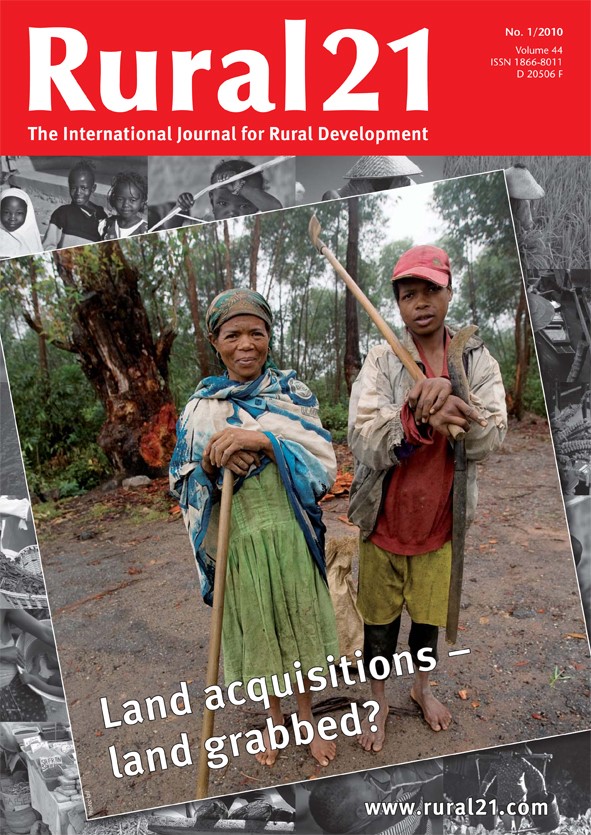DLG-Verlag was founded in 1952 as a subsidiary of DLG e.V. (Deutsche Landwirtschafts-Gesellschaft - German Agricultural Society) with its headquarter in Frankfurt/ Germany. The publishing company provides expertise for the agricultural and food sector.
With its subsidiaries Max-Eyth-Verlag and DLG-Agrofood Medien GmbH the DLG-Verlag offers books and magazines, as well as catalogs of the DLG's international DLG exhibitions.
Members:
Resources
Displaying 231 - 235 of 316Indigenous people are losing their livelihood
In many Asian, African, and South American nations, indigenous people are being driven from their homes: Government authorities are leasing hundreds of thousands of hectares of land belonging to indigenous people who only in the rarest of cases possess deeds to the land that are recognised by the authorities. Although in many cases their ancestors have lived on the land for centuries, these rights were never recorded in the land registries. The way of life and the livelihood of many indigenous peoples are severely threatened by their land being sold off.
New challenges for ACP countries?
Land is an asset of enormous importance for billions of rural dwellers in the developing world. Recent trends are prompting a massive increase in global commercial interest in land and natural resources, and this is creating unprecedented pressures on land resources, especially in developing countries.
Cheese versus poverty
Smallholder communities in the Bolivian highlands have managed to conquer hunger: cheese production o? ers great hope to the people of the Peñas Valley. Cheese provides healthy nourishment for their children, generates additional income for families, and stimulates the local economy. Education is a decisive factor.
"Land grabs" in Africa: Pathways, trends and the role of legal contracts
Large land acquisitions can have a deep, lasting e? ect on livelihoods, food security and the future of agriculture, so there is a need for strategic thinking, vigorous public debate and government responsiveness to public concerns, especially in recipient countries
Rethinking rural and agricultural finance - The African case
In order to boost agricultural growth in SSA, further investment in the agricultural sector is urgently needed. The mark-up of ODA funds is a stepping-stone in this regard. However, ODA should function as a catalyst for further private investments and should be used to assist recipient governments in building the institutional framework for attracting private investment and promoting balanced growth. Important success factors include further advances in improving domestic banking and agricultural risk management systems.


